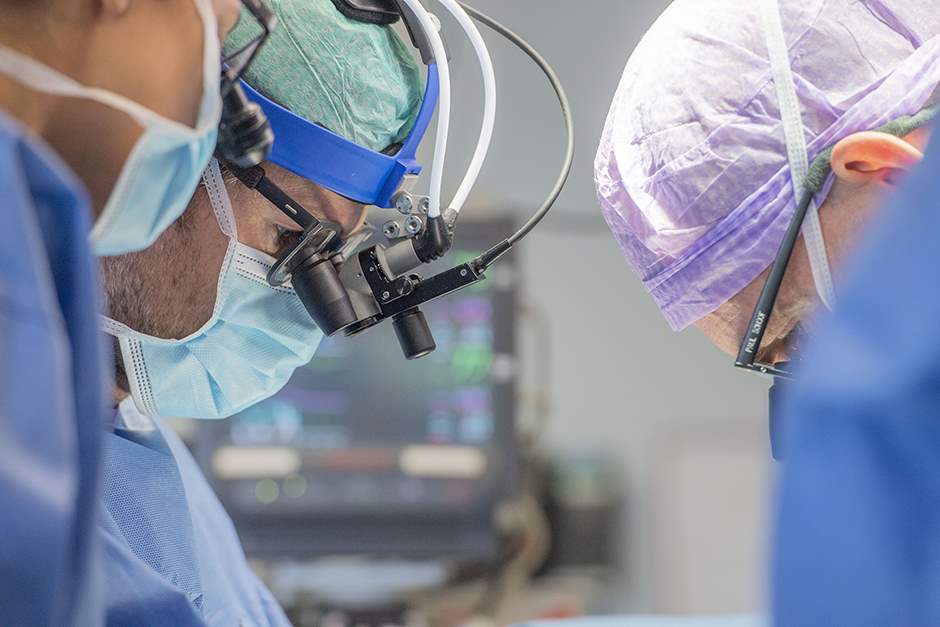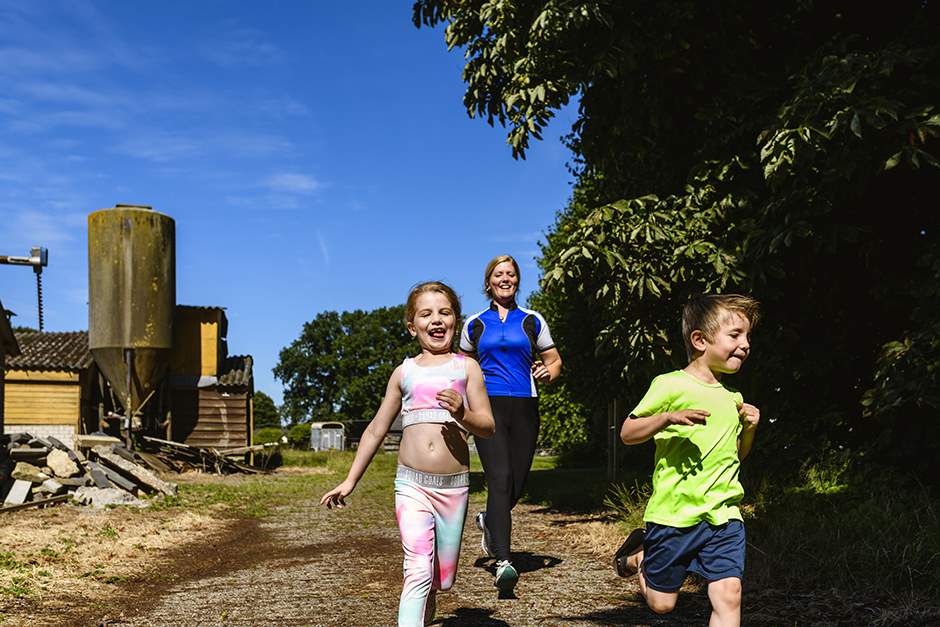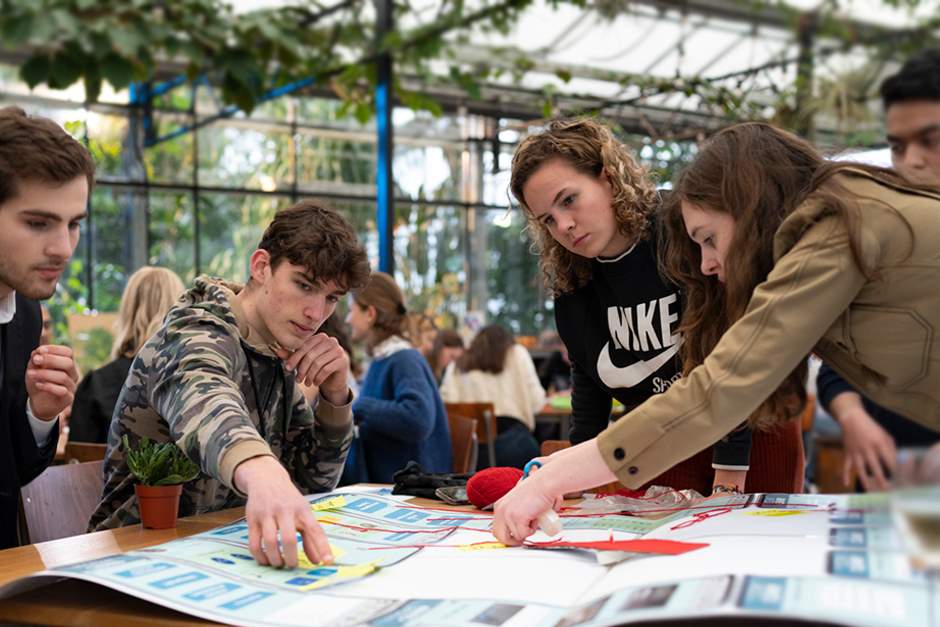Partnerships with a nationwide impact
Nationwide cooperation to provide the best care for patients with congenital heart defects
Healthcare for patients with a congenital heart disease is a top priority in the Netherlands. It is important to keep it that way and to continue improving this care. In 2024, the university medical centers of the Netherlands and the Ministry of Health, Welfare and Sport (VWS) made agreements in this regard. The UMCs of Amsterdam, Groningen, Leiden, and Utrecht will be collaborating in a network. The same goes for Rotterdam and Nijmegen. Maastricht is collaborating with the academic hospital in Aachen and Leuven. The UMCs will thus together be able to continue improving this care and to provide patients with a congenital heart disease with the most effective care. Together with the patient organizations involved, the UMCs will continue to the elaborate the arrangements in the agreement.

Work together to prevent disease
We are working with partners in various research projects to prevent disease (prevention).
A ‘healthy’ environment can prevent disease
In the Exposome-NL research program, we are studying which factors in people’s environment can influence the occurrence of cardiovascular diseases. We have discovered that poor air quality, noise pollution, and a lack of greenery in a person’s environment can increase the risk of cardiovascular disease. In 2024, we combined this knowledge in a digital model , that is similar to the video game SimCity. It enables us to study what we can change in people’s environment and what impact it will have on their health. In other words, which adjustments will yield which health benefits. We are also studying whether the health benefit differs between different groups of people. For example people with a high income and people with a low income. We are also looking at what we can do to reduce health disparities. This information is of value to the community, project developers, and construction companies. They can use it to lay areas out in a way that will improve people’s health so that fewer will get ill. With this information, people will also be able to make healthier choices themselves. In addition, we are looking at the impact of pollution and rising temperatures on people’s health .
Working together on the healthiest neighborhood in the Netherlands
The knowledge that we are gaining in the Exposome-NL study will be put to practice in the ‘Gezond stedelijk leven’ (‘healthy urban living’) project. In this project, we are working together with other organizations on healthier neighborhoods and healthcare in the right place. For example in the Cartesius neighborhood in Utrecht. The aim is to make it one of the healthiest neighborhoods in the Netherlands. In 2024, we signed agreements with Utrecht municipality, developers of the neighborhood, construction companies, and other knowledge institutions, to put our knowledge to practice in the Cartesius neighborhood. We are pooling ideas for the design of the neighborhood. We are following the execution of the plans and measures to make Cartesius a health neighborhood. And we are studying who is benefiting from these measures, when, and why. We share what we learn from this with other parties (learning communities), so that we can continue to develop even better measures and uses to keep people healthy. In this way, we can make the Netherlands a bit healthier, one neighborhood at a time.
The aim is to make the Cartesius neighborhood one of the healthiest in the Netherlands.

Comprehensive solutions to prevent disease
Which measures could help to give babies and children a healthy start? Or to let people grow older in better health? This is what we are studying together with various knowledge institutions in the countrywide Institute 4 Preventive Health of the EWUU alliance. In April and December 2024, eight research groups received funding to conduct their research. For instance a study on how health eating habits can be encouraged in children with autism. And a study on how digital tools can ensure more equality between people in terms of leading an active life. In all of these studies, technology, the environment in which people live (habitat), and how they live (lifestyle) are combined. We are therefore working on comprehensive solutions rather than loose measures. This increases the chances that measures to prevent disease will be more appropriate and applicable in different places.
Better treatment for arteriosclerosis
Treating arteriosclerosis more effectively through customized treatment. This is the main purpose of a new countrywide study on arteriosclerosis . Patients with arteriosclerosis currently all receive the same treatment. This may not be optimal, since the underlying causes of arteriosclerosis could differ. Due to these differences, patients can be more or less receptive to a certain treatment. If we know how to distinguish between patients with different forms of arteriosclerosis, we can treat them in a more targeted way. And thus avoid treatments that are not (sufficiently) effective. This can help to reduce healthcare costs as well as unnecessary side effects of a patient’s treatment. In 2024, the Dutch Heart Foundation gave € 6 million to study these differences in order to make customized treatment possible. UMC Utrecht is leading the study together with researchers from Rotterdam, Amsterdam, and Nijmegen.
Safe, high-quality care for the military
To ensure a strong armed force with great sustainability, it is essential to provide safe, high-quality medical care to the military. To guarantee this, the Major Incident Hospital (Calamiteitenhospitaal) together with the Ministry of Defense and other partners concerned, performed a drill in May 2024. This large-scale drill on NATO territory gave the Major Incident Hospital together with all other partners involved in the repatriation of soldiers from abroad, the chance to practice in different scenarios. From the first treatment on the battlefield to takeup and care in the Major Incident Hospital at UMC Utrecht.
Mirjam de Jong, Medical Manager at the Major Incident Hospital: “This exercise gives the Major Incident Hospital the opportunity to practice with the entire chain that is involved in the repatriation of soldiers from abroad. Overall, this is very important, both for Defense and for UMC Utrecht."
Healthy, sustainable nutrition: good for peoples health and for the environment
Healthy, sustainable nutrition contributes to people’s health. And helps to reduce the environmental impact. At UMC Utrecht, we continue to work on this. We do research for example in collaboration with Utrecht University (UU), Wageningen University & Research (WUR), Meander Medical Center, Gelderse Vallei Hospital, and Alliantie Voeding in de Zorg (nutrition in healthcare alliance). We are for instance studying the role of plant-based proteins in the approximately 400 hot meals that we prepare for our patients each day. We determine the protein content and quality. And we calculate the environmental impact thereof. This includes calculating greenhouse-gas emissions and use of land and water. We also study the effect of more plant-based food on (recovery from) disease. The study is funded by the EWUU alliance . In the EWUU alliance we combine our (scientific) knowledge in the field of research and education with that of Eindhoven University of Technology, Wageningen University & Research, and Utrecht University. In January 2024 at UMC Utrecht, we received colleagues from WUR and UU who literally got a glimpse of what’s cooking in our kitchen. We demonstrated for instance the Orbisk , an innovative device for measuring and reducing food wastage.
Improve and renew healthcare by sharing knowledge and skills in education
For students at the four institutions that fall under the EWUU alliance, the alliance in 2024 organized 6 education challenges. 93 Students from various programs worked together. In the Da Vinci Program students for instance collaborated with a company or social partner on innovative, sustainable solutions. One group of students for example collaborated with Unilever with the aim of finding an alternative to animal testing. The EWUU Alliance summer school, a 2 EC course on The Regenerative City also took place*. For this challenge, students designed a regenerative development zone in Amsterdam by supporting the local community and the country. This course gave an in-depth introduction to regenerative practices and leadership.

Reduced mortality from severe pneumonia caused by flue
Out of each 5 patients taken up in IC in the Netherlands with a severe viral pneumonia (caused by a virus) - some 900 patients a year - 1 on average do not survive. In 2024, a new study was launched to reduce the risk of mortality due to severe pneumonia caused by the flue virus. In this study, which is led by UMC Utrecht, we are investigating whether a treatment with tocilizumab or baricitinib, which are both effective for treating severe cases of COVID-19, also work effectively with severe pneumonia caused by flue. If this is successful, we will be able to prevent disease and mortality, curb the spreading of the virus, and reduce pressure on scarce IC beds. It is also important to know if these drugs will be effective in the event of a new pandemic caused by a flue virus.